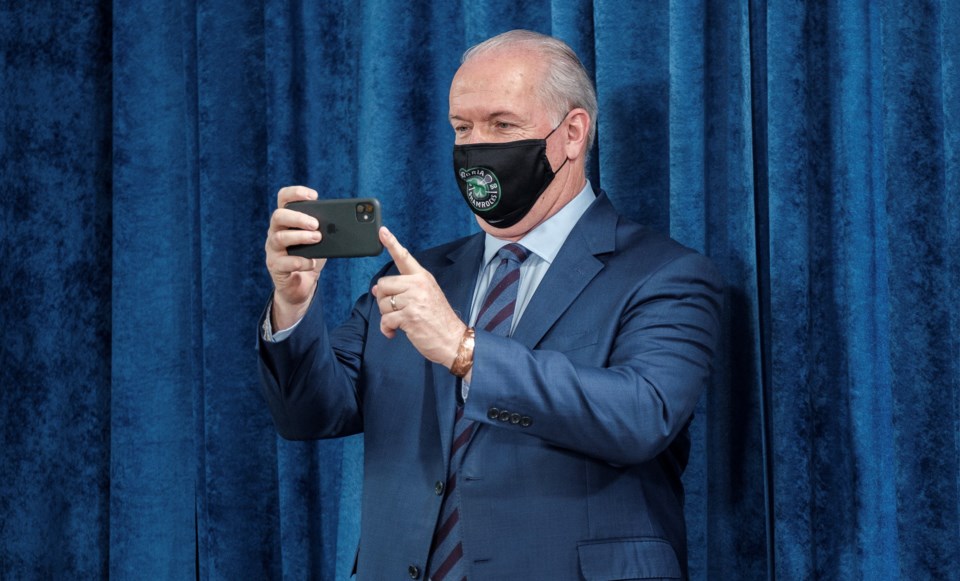Premier John Horgan on June 29 confirmed that his government on July 1 will loosen a range of restrictions on the way British Columbians live, and end the provincial state of emergency.
The move was expected, as Horgan conveyed in late May that his restart plan for the economy would come in steps. The first step went into effect May 25, with the second step following on June 15.
One of the biggest changes will be that wearing masks in public settings will be recommended, but not required.
"I'm going to be wearing a mask if I'm in touch with a group of people that I do not know, if I'm on a bus, I'm on a ferry, I'm on an airplane," Horgan said. "These are recommendations, not directives."
He said that he believes that it is "safe" to take the next step in returning to normalcy.
"That means we can go and cheer for our kids at the soccer game, in the arena, in the gymnasium," he said.
"We can go to a friend's place for dinner. We can plan that wedding. We can go to the theater. We can go to a concert. We can engage again in what makes life so important, and that's the interaction of people together."
Provincial health officer Bonnie Henry said the mask mandate was being lifted because masks are the "last layer of protection."
She said that while the mask mandate has ended, wearing a face covering will still help prevent the spread of disease.
"We may be seeing less people wearing masks, but right now, we still will expect most people to be wearing masks in those indoor settings when we're around other people," she said
Other key prongs in what Horgan calls Step 3 include:
• allowing all indoor fitness classes;
• allowing some indoor spectators at sporting events;
• ending size restrictions for indoor and outdoor personal gatherings;
• increasing capacity at indoor and outdoor organized gatherings;
• allowing fairs and festivals to operate;
• allowing Canada-wide travel for British Columbians, and welcoming all other Canadians;
• ending group-size restrictions at restaurants, although separate groups are still unable to mingle;
• lifting liquor-service restrictions;
• allowing casinos to operate at 50% capacity;
• allowing nightclubs to operate with no dancing;
• allowing business seminars; and
• allowing kids' sleepovers.
Henry said venue capacity limits have been increased to either 50 people, or 50% of the venue's capacity, whichever is larger.
Residents remain expected to follow communicable-disease prevention guidance.
"We'll be welcoming people from other provinces, preferably vaccinated," Henry said.
The Vancouver Airport Authority sent Glacier Media a statement noting that on July 5, fully vaccinated Canadian travellers who have received two doses of Canada-approved vaccines 14 days prior to entering the country will be exempt from government-approved hotel quarantines, and testing after eight days. It expects that this will help spur a rise in air travel.
The fourth, and final, step in the province's reopening is slated to go into effect no earlier than September 7.
This step would involve the province allowing increased capacity at large organized gatherings, such as at concerts.
Workplaces would fully reopen in this phase, and sport competitions would operate in a pre-pandemic way.
Indigenous Tourism Association of Canada president and CEO Keith Henry urged British Columbians, and other Canadians, to travel as much as they can in the upcoming months.
"We're going to try and hope Canadians really understand we need their help, and we'll hope people explore as much as we can," he said on a June 28 Greater Vancouver Board of Trade webinar.
"Our hope is it gets better. That's not a good business models we know, but it's all we got right now, and we're going to make it work by creating packages and itineraries.




